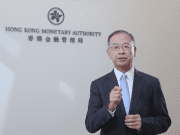5 Reasons why Wealth Management is harder in low-tax countries
The usual considerations in Wealth Management are investing, beating inflation, managing cashflow and risks.
2 key factors are often discussed: interest rate and inflation rate. High interest rates attract more deposits while lower interest rates motivate people to think of what to do with their money. Primarily, this is what Central Banks, Economists and Monetary policies is all about – to influence money movements to spur economic activities.
Related Articles:
But the far more important consideration is tax. The effects of tax have a greater impact on financial decisions than interest rates alone – a reason why large corporations spend lots of time with tax advisors thinking of how to structure their business in a tax-efficient manner. Wealthy families also create legal entities to structure their assets in the most tax-efficient jurisdiction.
For example, in 2015, a high income earner in Australia could be paying 45% tax while someone in Hong Kong is paying only 17%. The tax difference is substantial enough to think about where to work and where to live. For $1 Million annual income, the tax difference is $270,000 in that year.
Read More: 2015 Global Personal & Corporate Tax Rate at a Glance
There are only 2 certain things in life: Death and Taxes
~ Benjamin Graham
Here, we look at 5 reasons why Wealth Management is harder in low-tax countries:
No. 1 The Effects of Tax are Greater than the Returns on Investments

If you need to pay high taxes, and certain tax-savings actions could reduce the tax paid, it may be worth more than your portfolio returns.
Many countries have tax-deductibles on contribution to pension funds, retirement funds, buying insurance plans and donations. All these reduce burdens on the country social spending, where the contributors are usually rewarded with tax-savings on the amount contributed, or a factor of the amount (sometimes more, sometimes less).
Paying Full Tax versus Allocating $20,000 into Tax-deductible Investment Assets:
| Paying Full Tax | Reducing Tax | |
| Income Earned | $100,000 | $100,000 |
| Tax-Deductible Assets | $0 | $20,000 |
| Taxable Income | $100,000 | $80,000 |
| Tax Payable 20% | $20,000 | $16,000 |
| Net Income | $80,000 | $84,000 |
| % Tax Loss | – 20% | – 16% |
By allocating $20,000 of the earned taxable income of $100,000 into a Tax-deductible asset, the net tax payable is reduced from $20,000 to $16,000, generating an additional cash of $4,000.
Below, we calculate the number of years that is required to recover the tax paid, in other words, reach the original sum of $100,000.
Breakeven Years to get the original $100,000 amount:
| Portfolio Returns | Without Tax Planning | With Tax Planning | Years Saved |
| 2% p.a. | 11.27 Years | 9.11 Years | 2.16 Years |
| 5% p.a. | 4.58 Years | 3.55 Years | 1.13 Years |
| 7% p.a. | 3.3 Years | 2.53 Years | 0.83 Years |
If the average portfolio return is compounded at 5% p.a., it would take 4.58 years to grow the $80,000 to $100,000, the original amount. The right-most column shows the number of years saved.
This highlights the importance of tax-savings action, which could have larger impact on investment returns.
No. 2 Lack of Understanding of Global Tax Rates

Many financial institutions stay away from tax advisory for fear of association with tax evasion. However, many governments also provide tax-exemptions for income contribution into businesses, investments, donations to promote economic growth, retirement planning and social contribution.
- U.S. Chases Swiss Bank Secrets to Singapore and Israel
- How much did Facebook Co-founder really save?
In low-tax countries, there isn’t much savings that could be generated from tax-savings activities. This means the focus on understanding how tax could impact financial decisions, are either taken for granted or not taken into considerations.
But if you are living in a high tax country, migrating or incorporating companies in lower tax countries could mean a huge savings over time. However, some countries like United States have a global taxation policy. This means as long as you are a United States Person (citizen), you will still be liable for tax.
Income Tax for the Highest-Tier Personal Income Earners:
| Highest Personal Tax Rate | Lowest Personal Tax Rate |
| Australia – 45% | Russia – 13% |
| China – 45% | Hong Kong – 17% |
| United Kingdom – 40% | Singapore – 20% |
| Switzerland – 40% | Malaysia – 28% |
| Japan – 40% | Indonesia – 30% |
Corporate Income Tax:
| Highest Corporate Tax Rate | Lowest Personal Tax Rate |
| United States – 47% | Hong Kong – 16.5% |
| Japan – 38.01% | Singapore – 17% |
| Canada – 31% | Switzerland – 17.92% |
Sidenote: Not taken into consideration more complex tax issues such as capital gain tax, gift tax and estate duties, withholding tax.
No. 3 The Cost of Not Doing Anything, is Low

If the tax rate is 10% or 0%, the cost of doing nothing is almost zero. The tax savings, if any would make little difference for the fees and the effort. This creates less incentive for clients to do something with their money.
If savings are made as a result of a tax-related financial decision, clients would value the advice and be more willing to listen and explore wealth management options. This make it easier for wealth managers to provide wealth management advisory services to clients.
No. 4 Wealth Advice has no Urgency, hence is Optional

And since tax planning is not an immediate need, this creates no urgency for a professional meeting with the wealth manager.
In countries where tax rates are higher, a meeting with a Wealth Manager could result in substantial tax savings. This creates an immediate level of professionalism and trust, allowing a comprehensive wealth and financial plan to be easily crafted, discussed and executed.
In low-tax jurisdiction, Wealth Management service and advice hence, is an optional one.
No. 5 Lower Value-add, thus Lower Fees.

If allocating assets to investments, insurance or loans could result in substantial tax savings, clients would not mind paying a higher fee. For clients, these actions would be a value-added decision.
With the advice of the Wealth Manager, clients will enjoy a definite and quantifiable tax-savings, a potentially better portfolio returns and a peace of mind.
In low-tax countries, wealth managers do not have the advantage of being able to offer tax-savings advice alongside the wealth management plan. During long spells of economic downturn, wealth managers will feel the greater impact with sustained decline in clients’ wealth, income and risk-appetite.
5 Reasons in review:
- The Effects of Tax are greater than the Returns on Investments
- Lack of understanding of Global Tax Rates
- The cost of not doing anything, is low
- Wealth Advice has no urgency, hence is optional
- Low Value-Add, thus Lower Fees
These are 5 reasons why Wealth Management is harder in low-tax countries. Anymore? Learn More about Global Tax: 2015 Global Personal & Corporate Tax Rate at a Glance
More Articles:
- What Wealth Managers in Singapore Struggle with?
- 8 Reasons why customers don’t understand the value of Wealth Managers
- 7 Secrets how the old rich achieve success with Wealth Managers
Sign Up / Register
Caproasia Users
- Manage $20 million to $3 billion of assets
- Invest $3 million to $300 million
- Advise institutions, billionaires, UHNWs & HNWs
Caproasia Platforms | 11,000 Investors & Advisors
- Caproasia.com
- Caproasia Access
- Caproasia Events
- The Financial Centre | Find Services
- Membership
- Family Office Circle
- Professional Investor Circle
- Investor Relations Network
Monthly Roundtable & Networking
Family Office Programs
The 2025 Investment Day
- March - Hong Kong
- March - Singapore
- July - Hong Kong
- July - Singapore
- Sept- Hong Kong
- Sept - Singapore
- Oct- Hong Kong
- Nov - Singapore
- Visit: The Investment Day | Register: Click here
Caproasia Summits
- The Institutional Investor Summit
- The Investment / Alternatives Summit
- The Private Wealth Summit
- The Family Office Summit
- The CEO & Entrepreneur Summit
- The Capital Markets Summit
- The ESG / Sustainable Investment Summit

































